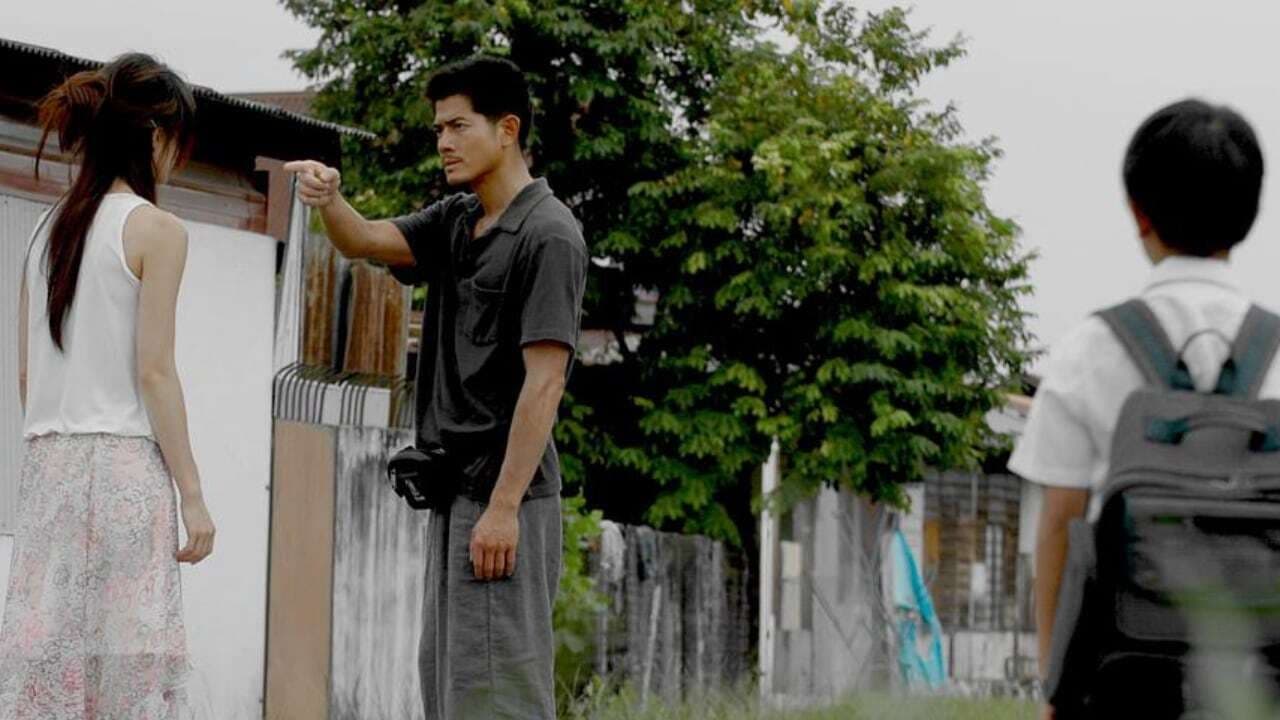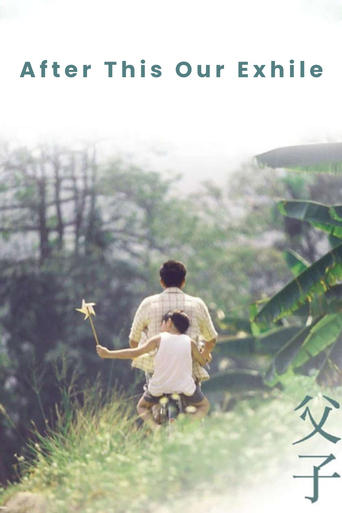



People are voting emotionally.
I have absolutely never seen anything like this movie before. You have to see this movie.
View MoreThe movie's neither hopeful in contrived ways, nor hopeless in different contrived ways. Somehow it manages to be wonderful
View MoreIt’s sentimental, ridiculously long and only occasionally funny
View MoreThis story mostly revolves around a boy called, actually "boy" throughout the film. His parents are not happy, with his mom Lin trying to leave the son and his father (the boy's parents are not legally married) in the beginning of the film. Once she does, it is up to his father Sheng (well played by Aaron Kwok) to take care of the boy. He is a hopeless gambler, always in debt and they leave their town in China for a better chance at sustaining themselves. The film is straightforward in its telling, moving at a semi-slow pace. The film is also atmospheric at times, with the cinematography at times superb. The story in and of itself is not immediate, variations of it have been done before, but its well filmed. The reason for the grade not being higher is its lack of synergy with the characters. You may or may not care for them as the film progresses, but you don't relate to them. I suppose this is a slice of life in which the point may be that it's hard to rise above your station in life without making an honest attempt at change. That being said, this film reminds me somewhat of Wong Kar-Wai's films, it shares in those films a simple approach to a deceptively simple story. Its a good film, but not a masterpiece. It is, however, worth watching.
View MoreI, and probably most Malaysians (and possibly South-East Asians), was pleasantly surprised to find that this was in fact a "Malaysian" movie made by a mainly HK cast and crew. The award for best screenplay was well-deserved for its authentically-researched "Malaysian" script and setting. And the fact it won awards and critical acclaim in HK movie industry showed that HK did not hold the "purist" attitudes that mainland China and other regional movie industries have.Yes, I'm talking about the mainly Cantonese dialogue. Many Malaysian ethnic-Chinese are native Cantonese speakers, but the way they incorporated various Malay and other words/ accents into their speech is just as "notorious" as the way HK Chinese incorporated various English and other words/ accents into their speech. And just like mainstream Chinese cinema audience did a double-take when they heard a mish-mash of Mandarin accents in "Crouching Tiger, Hidden Dragon", I was frequently jolted back into Malaysia by the mish-mash of Cantonese accents.But apart from the dialogue, it also gets alternative/ art cinema credit for its naturalistic style of filming-- almost the opposite of Hollywood's so-called "realism" with "balanced/ well-made" characters/ plots/ themes/ etc. Because watching a family/relationship disintegrate is very much like watching a train-wreck in super-slow motion, with most of its sleeping passengers slowly waking up. If you have been cursing the father throughout the whole movie, the final scene with the son is especially heart-breaking.
View MoreThe above title explains it all: when vengeance binds a father and a son. That was a Chinese idiom to describe the the fate that binds a father and son together. And this best describes the movie, After This Our Exile.After migrated to Malaysia, Hong Kong director/scriptwriter Patrick Tam decided to tell a tale of gambling-addicted father (Aaron Kwok, which earns him a Golden Horse Award from Taiwan for Best Actor) and a son (the 9 year old newcomer Gouw Ian Iskandar) who was torn between his father and his mother (Charlie Yeung).Set in Ipoh, Perak, the story begins with the boy sensing something is amiss when his mother was exceptionally nice to him in a morning before school. He found out that she was preparing to leave the home. He informs his father, and the couple had a quarrel in their neighborhood. She fails to run away.When the mother told the father that she is leaving him due to his bad temper and gambling addiction, he decided to change. He brought the whole family for a cruise, and yet he goes gambling in the cruise. She left the family this time round, leaving the son and the father to face the problem.Facing with harassment from the loan sharks and tonnes of unpaid bills, the father seek another alternative to get the money by go gambling in Genting Highlands. (Note: Genting Highlands is a tour/leisure resort in Pahang, Malaysia, where it consist of theme parks, shopping malls and casinos. Popular among Malaysians and Singaporeans.) He lost the money, leaving them with larger debts. To get the money, the father gets the son to steal valuables from their neighbors.After This Our Exile is a simple yet sad tale about the struggles between a father and the son. The father was struggling from the loss of his wife, constant debts and his gambling addiction. The son was struggling with the life without his mother, which ends up being ripped off from the privilege of continuing his elementary education. This, somehow, truly reflects on what is happening in our society today.Kwok takes a new exploration on the role of the father, who was short tempered, selfish, and more often, cried over spilled milk. Compared to his previous roles in other features, Kwok has given his fans and audience a new look on his skills for the past decade. Yeung's role as the mother can be added more, for there are rooms in theatrical version, which can explores more on the pains she has been through.The 9 year old Iskandar was something new for the film. Without any acting backgrounds, he amazes the audience with his fine and innocent acting skills.While the director's cut gives the audience a fuller view on the story, the theatrical version seems disappointing, for it left the audience with too much space to guess. This has somehow unable to brought up the 'vengence' that binds the father and son together, leaving a bittersweet aftertaste.After This Our Exile sounds common to some, but it left the audience to re-examine the strained relationship between a father and the son.
View MoreThis film needs no introduction. The latest work from director-writer Patrick Tam, After This Our Exile took home honours from the recent 2006 Golden Horse Awards for Best Actor, Best Supporting Actor, and Best PIcture, and after watching it today, it's no surprise why it did.As mentioned in one of my recent reviews, the storyline of a movie is important, nevermind if the technicalities are great, because if the story doesn't engage, then it's a battle lost, in my opinion anyway. In After This Our Exile, the story is extremely simple, but it resonates deeply, and also because it deals with something very personal, very close, and perhaps, family ties always cut closer to home. After all, the Chinese title is Fu Zi, literally translated as Father-Son, which is quite unsophisticated if compared to the English title.If you raised an eyebrow in Aaron Kwok's win for his acting in Divergence and thought he probably didn't deserve it, then his role as Sheng will win you over and justify his back to back win at the Golden Horse Awards. I'm sold. Gone are those teeny-bopper bad hair days and repetitive dance moves. Now, with maturity, he adds a certain gravitas to his roles, and kudos too to his willingness to take on unsavoury characters, instead of playing hero all the time. His dad is the perennial terror, one who blows hot and cold in a whim, full of false bravado, and never hesitant to raise a hand against spouse and kid. Uneducated, loud, uncouth, and worse, a habitual gambler, life for his family is difficult, both in material and emotional wealth. Yes, Kwok pulled off this character with aplomb, with subtle nuances, gestures, mannerisms and attitude all spot on, bringing to life a character you'll so love to hate, yet sympathize with at the same time.And since the "Fu" played opposite the "Zi", and having both of actors pull off their father son relationship so convincingly, with great on screen chemistry, it's no wonder too that 9 year old Gouw Ian Iskandar took home the Best Supporting Actor award as the Son. His childlike innocence will probably bowl you over with earnestness, as he holds his own opposite Kwok and screen mother played by Charlie Young. He doesn't come off as irritating, and is so much likable and vulnerable in character that you just want to give him a hug. Intuitive and smart, you'd come to love and pity his character very early in the story.Charlie Young only had half as much to do as the other two leads, and without makeup, she manages to bring out that average every day weary look of a tired mother and wife who had enough. And herein, the conflict begins, from the beginning of the film. Other supporting cast include Valen Hsu and Kelly Lin, are kept to a minimum, thereby keeping the focus squarely on the principal cast.As I mentioned earlier, After This Our Exile tells a simple tale with deep themes, and is able to draw out emotions from within you as it resonates. In what could be problems that households face when there's a gambler in the home, the movie sets to show these issues from the onset, with the breaking down of family ties and values, and the debt causing financial strain on the family. I guess opposition to our Integrated Resorts would see their arguments fleshed out here.In what could be an oversimplification of the issue, gamblers = debts = strain in family relations, it is this domestic disturbance that ring out vividly. Broadly it can be categorized into two acts (no, I won't say anything more), but each act focuses on different aspects on the family relationship and dynamics. Toward the end, everything comes full circle, with the son experiencing exactly what the mom has gone through, and it makes the movie extremely poignant. It emphasizes the widely held notion that in domestic squabbles, it's always the children who suffer the fate of the consequences.Brilliant cinematography and awesome musical pieces complemented the movie well, with plenty of nice piano pieces punctuating emotional moments. The pacing, though slow, is well measured, and Ipoh never looked more beautiful, becoming a character in itself rather than just another locale to shoot the film in. Attention to details are not spared, and the production brings about Malaysian flavour to it too. Some though I predict, may not enjoy the open end that director Patrick Tam chose to finish it with, but it will allow for post viewing discussion, loads of it.My only gripe, as I just found out, is that the theatrical version now showing in theatres, is the watered down one. The director's cut, clocking in at almost 2.5 hours, get whittled down to 2 hours here, leaving certain scenes on the cutting room floor which were glimpsed at through a series of very quick flashback montage. I thought the film could have gone on and showed us more footage, especially on the father-son bonding (hinted from production stills), which I thought would have added a better level of the understanding about the dynamics of the Fu-Zi relationship.The second movie this year which used the You Are My Sunshine song (the other is the Korean movie), After This Our Exile makes its way easily into my shortlist of favourite movies of 2006.You are my sunshine, making me happy when skies are grey. You never know how much I love you.
View More